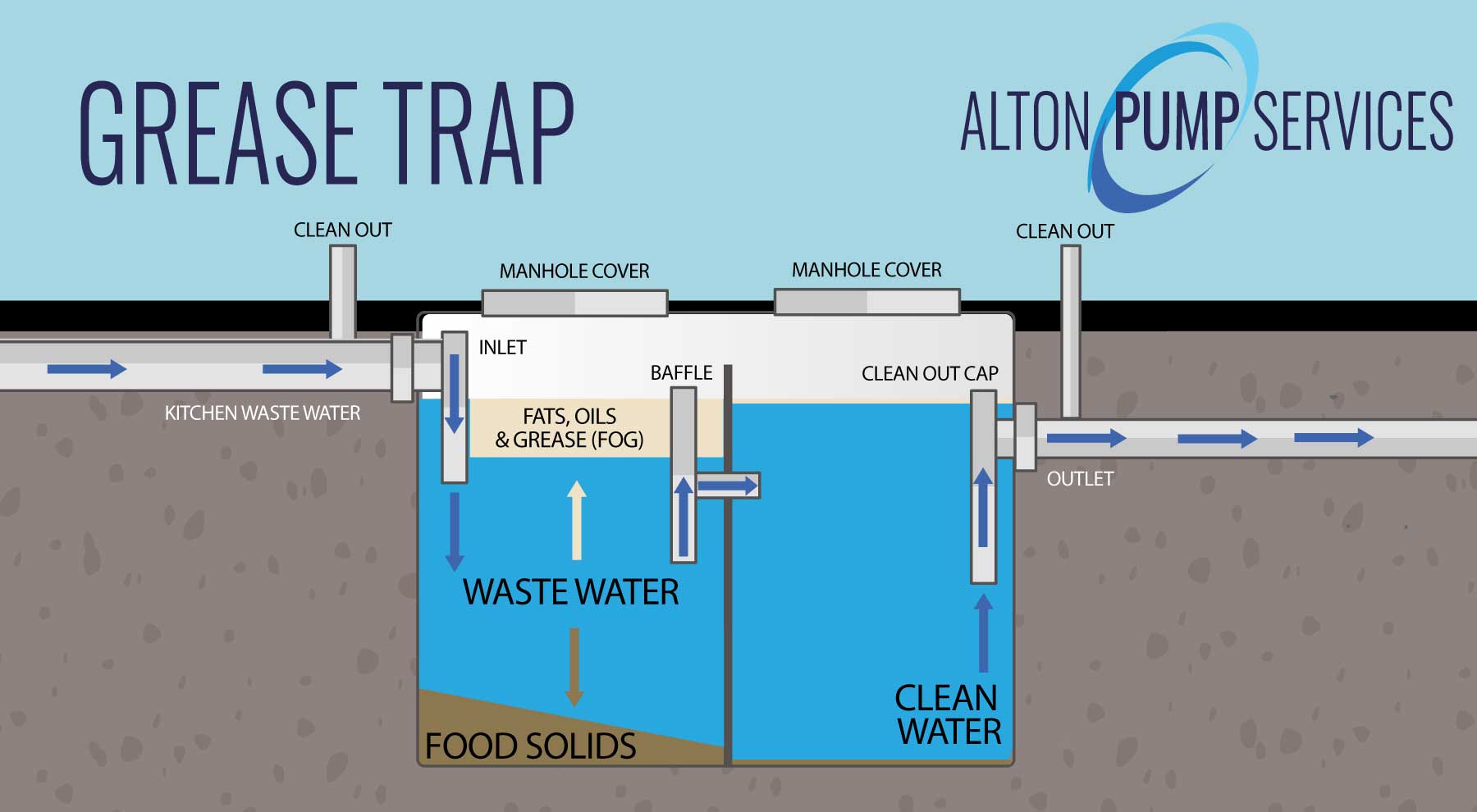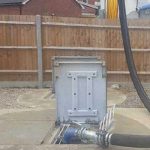Grease traps, are also known as interceptors, converters, catchers, grease recovery / management devices or FOG traps. A grease trap is a tank processing system into which kitchen wastewater containing FOG flows through before entering a drainage system. Most commercial kitchens require a grease trap in order to prevent drain blockages. Grease traps manage the fats, oils, and greases that are produced during cooking, baking, frying or dish washing operations.
When wastewater enters a grease trap, the water flow is slowed down, separating into solids on the bottom layer, wastewater in the middle, and FOG on the top. As animal fats and vegetable oils are 10-15% less dense than water, they float to the surface – grease traps are designed to intercept the FOG on the surface. The frequency of grease trap cleanings vary depends on the level of FOGs produced. Cleaning should be performed approximately every one to three months. If your grease trap becomes full, grease will begin flow out of the primary compartment into the secondary one, so must be regularly cleaned in order to operate efficiently. Alton Pump Services provide pre planned or emergency grease trap cleaning services to commercial and institutional kitchens throughout The South.
Grease traps or interceptors come different sizes. The smaller variations are designed for indoor connection direct to sinks and other fixtures (usually with a total flow less than 50-100 gpm), and larger ones designed to service large kitchens, which are installed outdoors and underground.




